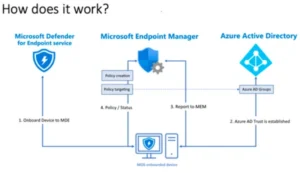Candidate vetting is a critical process in healthcare recruitment in London, ensuring that only qualified and trustworthy professionals enter the medical workforce. With the complexity of healthcare roles and the impact they have on patient care, organizations must prioritize the integrity of their hiring processes. In an environment where regulatory compliance and patient safety are paramount, effective candidate vetting serves not only to protect the organization but also to uphold the standards of care expected in the healthcare system. This introduction sets the stage for understanding the various facets of candidate vetting, exploring its importance, the steps involved, best practices, challenges, and the essential role of background checks. As healthcare continues to evolve, so too must the methods used to vet candidates, ensuring that they are fit for purpose in a dynamic and often high-pressure environment.
Candidate Vetting Enhances Patient Safety in London’s Healthcare Requirement
The importance of candidate vetting in healthcare recruitment in London cannot be overstated, as it directly influences patient safety, care quality, and organizational reputation. In a city known for its diverse population and high standards of healthcare, vetting processes help ensure that candidates possess not only the requisite qualifications and skills but also the ethical integrity necessary to work in sensitive environments. Poor hiring decisions can have dire consequences, including medical errors, compromised patient care, and legal ramifications. By implementing robust vetting procedures, healthcare organizations can mitigate these risks, ensuring that they hire individuals who are not only competent but also align with the values and standards of the institution. Moreover, in a landscape where regulatory compliance is essential, thorough vetting is crucial for adhering to legal and professional standards. Overall, candidate vetting is a cornerstone of effective healthcare recruitment, safeguarding both patients and healthcare providers.

Candidate Vetting For Healthcare Recruitment In London
The steps involved in candidate vetting for healthcare recruitment in London are comprehensive and multi-faceted, designed to ensure a thorough assessment of each applicant. Initially, the process begins with the collection of application materials, including resumes, cover letters, and any supporting documents that outline the candidate’s qualifications and experiences. Following this, organizations typically conduct an initial screening to shortlist candidates based on their qualifications and relevant experiences. This is often followed by in-depth interviews that not only assess technical competencies but also evaluate soft skills and cultural fit within the organization. Furthermore, it is crucial to conduct reference checks with previous employers, which provide insights into the candidate’s work ethic, reliability, and interpersonal skills. Another significant step is the verification of educational credentials and professional licenses, which ensures that candidates hold the necessary qualifications to practice in their respective fields. Additionally, many organizations employ psychometric testing or competency-based assessments to evaluate candidates’ aptitude and behavioral traits. By following these steps diligently, healthcare recruiters in London can enhance the likelihood of selecting candidates who are well-suited for the demands of the healthcare environment.
Vetting Process in Healthcare Recruitment In London to Ensure Quality Hires
Implementing best practices for effective candidate vetting in healthcare recruitment in London is essential for enhancing the quality of hires and ensuring patient safety. One key practice is the development of standardized vetting protocols that outline clear criteria for evaluating candidates. This includes defining the specific qualifications, skills, and experiences that are essential for each role within the organization. Additionally, involving a multi-disciplinary team in the vetting process can provide diverse perspectives and reduce biases. Regular training for hiring managers and recruitment staff on the latest vetting techniques and compliance requirements is also crucial to stay updated on industry standards. Another best practice is the use of behavioral interview techniques, which focus on past experiences to predict future performance. This method allows interviewers to gain deeper insights into a candidate’s decision-making processes and interpersonal skills, which are particularly important in healthcare settings. Moreover, maintaining an open line of communication with candidates throughout the vetting process fosters transparency and enhances the candidate experience. By adopting these best practices, healthcare organizations can build a robust vetting framework that not only attracts top talent but also supports a culture of excellence and accountability.
Candidate Vetting For Healthcare Recruitment In London
Despite the importance of candidate vetting in healthcare recruitment in London, several common challenges can complicate the process. One significant challenge is the high demand for healthcare professionals, which can lead to rushed hiring decisions that compromise the thoroughness of the vetting process. In a competitive job market, organizations may feel pressured to fill vacancies quickly, potentially overlooking critical evaluation steps. Additionally, the sheer volume of applications received can make it challenging for recruitment teams to conduct comprehensive assessments for each candidate. Another challenge arises from the increasing complexity of verifying credentials and backgrounds, especially for international candidates or those with varied employment histories. This can require substantial time and resources, complicating the recruitment timeline. Furthermore, ensuring consistency in the vetting process across different roles and departments can be difficult, especially in larger organizations with multiple hiring managers. Lastly, navigating the balance between thorough vetting and providing a positive candidate experience poses a challenge, as lengthy processes may discourage potential hires. Addressing these challenges requires a strategic approach that emphasizes the importance of quality over speed while employing tools and technologies to streamline the vetting process.
Role Of Background Checks In Healthcare Recruitment In London
Background checks play a pivotal role in candidate vetting for healthcare recruitment in London, serving as a fundamental component in ensuring the safety and integrity of healthcare professionals. These checks typically include criminal history screenings, verification of educational credentials, and professional licensing confirmations, which are essential for establishing a candidate’s suitability for their role. In the context of healthcare, where professionals often work with vulnerable populations, ensuring that candidates do not have a history of malpractice, substance abuse, or violent behavior is critical. Moreover, background checks can reveal discrepancies between what candidates claim on their resumes and their actual work history, helping organizations avoid potential risks associated with dishonest applicants. In London, where healthcare organizations must adhere to strict regulatory requirements, implementing comprehensive background checks is not only a best practice but also a legal obligation. Additionally, these checks can be tailored to the specific needs of various roles within the healthcare system, such as those requiring direct patient contact versus administrative positions. By conducting thorough background checks, healthcare organizations can foster a safe and trustworthy environment for both staff and patients.
Healthcare Recruitment in London with Advanced Candidate Vetting Tools
Leveraging technology for candidate vetting in healthcare recruitment in London has become increasingly vital in streamlining and enhancing the efficiency of the hiring process. Various tools and software solutions are available to automate parts of the vetting process, such as applicant tracking systems (ATS) that facilitate resume screening and management. These systems can help recruiters identify qualified candidates more quickly by using algorithms to match applicants’ qualifications with job requirements. Additionally, technology enables the integration of background check services that provide instant access to criminal records, educational verification, and professional licenses. Online assessment tools and video interview platforms also allow for efficient evaluation of candidates’ skills and personalities, providing a more comprehensive view of their capabilities. Furthermore, leveraging data analytics can help healthcare organizations track the effectiveness of their recruitment strategies and make data-driven decisions to refine their vetting processes. By embracing technology, healthcare recruiters in London can not only improve the quality and speed of candidate vetting but also enhance the overall candidate experience, making it easier for top talent to engage with potential employers.
Candidate Vetting For Healthcare Recruitment In London
Ensuring compliance in candidate vetting for healthcare recruitment in London is paramount in maintaining the integrity of the hiring process and adhering to regulatory standards. Healthcare organizations must navigate a complex landscape of laws and regulations, including those set forth by the Care Quality Commission (CQC) and the General Medical Council (GMC), which mandate specific vetting procedures to safeguard patient welfare. Compliance involves implementing thorough background checks, verifying professional credentials, and ensuring that candidates meet all legal requirements for their respective roles. Additionally, organizations must remain vigilant about data protection regulations, such as the General Data Protection Regulation (GDPR), which governs how personal information is collected, processed, and stored during the vetting process. Training recruitment staff on compliance requirements is essential to ensure that all procedures are followed consistently. Regular audits of the vetting process can also help identify areas for improvement and ensure that organizations remain compliant with evolving regulations. By prioritizing compliance, healthcare organizations not only protect themselves from legal ramifications but also enhance their reputation as responsible employers committed to maintaining high standards of care.
Conclusion
In conclusion, candidate vetting in healthcare recruitment in London is a multifaceted process that plays a critical role in ensuring patient safety, quality of care, and organizational integrity. The importance of thorough vetting cannot be understated, as it serves to safeguard both patients and healthcare providers from the risks associated with poor hiring decisions. By following structured steps, implementing best practices, and overcoming common challenges, healthcare organizations can enhance their recruitment processes and select candidates who are not only qualified but also align with their values and standards. The integration of background checks and technology further strengthens the vetting process, allowing for efficient and comprehensive assessments of candidates. Additionally, ensuring compliance with legal and regulatory requirements is essential for maintaining the integrity of the healthcare workforce. As the healthcare landscape continues to evolve, so too must the approaches to candidate vetting, ensuring that London remains a hub for quality healthcare professionals dedicated to providing exceptional care.

Introducing Kyriakos Loretta, a nomadic wordsmith navigating the ever-shifting cities of the United States. This prolific author has penned captivating books that reflect a passion for storytelling that knows no boundaries. Beyond the written realm, Kyriakos collaborates with magazines and news channels, weaving narratives that mirror the dynamism of the diverse American urban landscape.



